The Fierce and Wise Goddess: Discover Athena’s Secrets
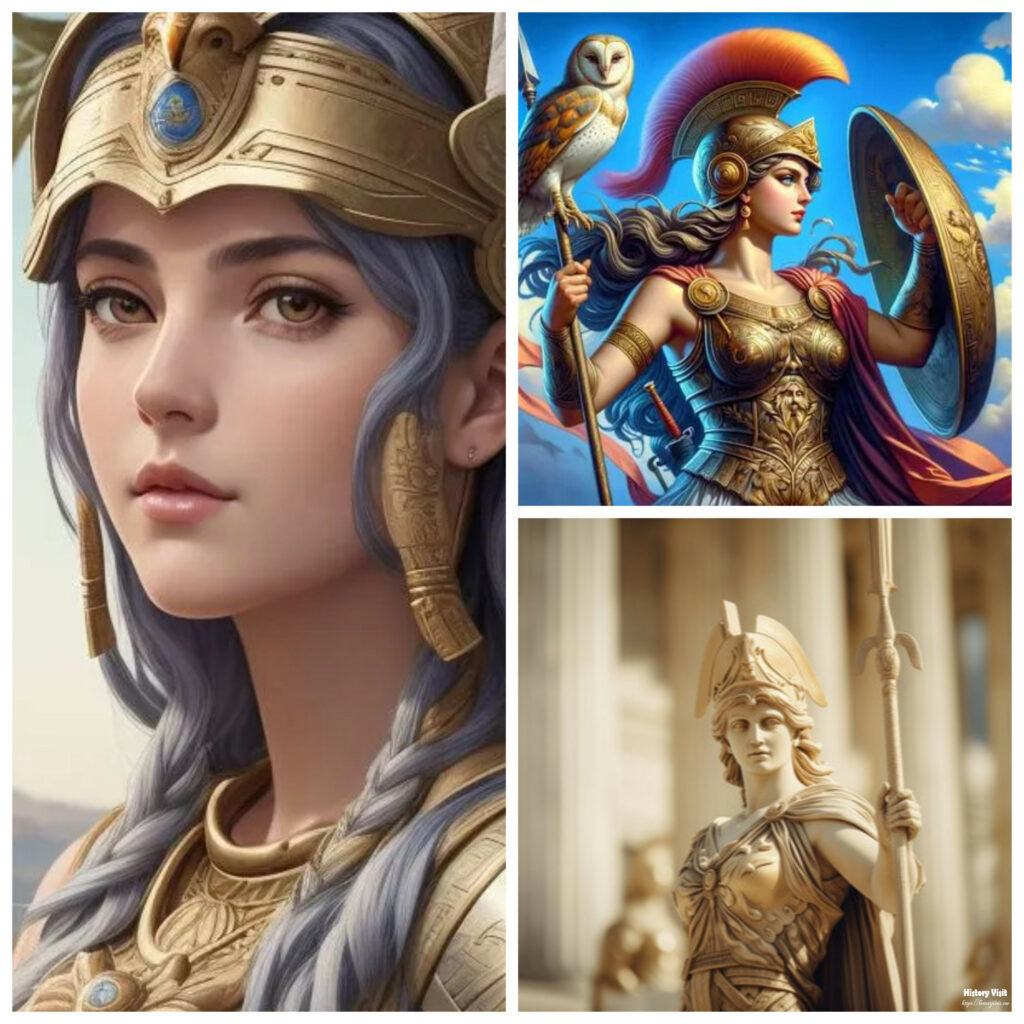
Introduction
Athena, the revered Goddess of Wisdom and Warfare, stands as one of the most pivotal deities in Greek mythology. Embodying both the strategic aspects of war and the profound depths of wisdom, Athena’s influence permeates numerous facets of ancient Greek culture. This article explores Athena’s divine role and influence, delving into her origins, attributes, significance in major myths, and enduring legacy.
Known for her intelligence and strategic acumen, Athena occupies a unique position among the Olympian gods. Her birth, directly from Zeus’s head, signifies her role as the embodiment of divine wisdom and reason. As a goddess who champions both intellectual pursuits and martial prowess, Athena’s presence is felt in the realms of philosophy, warfare, crafts, and governance.

Through her guidance and protection of heroes, her establishment of cities, and her patronage of various arts, Athena’s impact on Greek mythology and culture is profound. Understanding Athena’s multifaceted nature provides insight into the values and beliefs of ancient Greece, highlighting her as a symbol of wisdom, strategy, and justice.
Origins and Birth of Athena
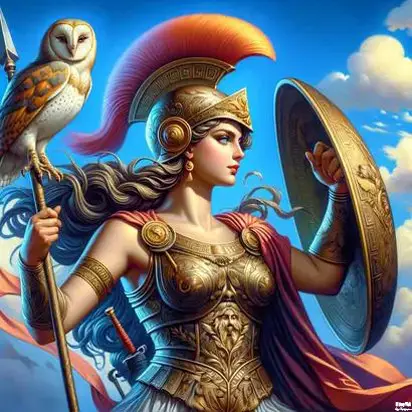
Athena’s origins are both unique and symbolic, emphasizing her role as the goddess of wisdom. She was born fully grown and armored from the forehead of Zeus, following his consumption of her pregnant mother, Metis, the goddess of wisdom. This dramatic birth underscores Athena’s emergence as a deity of intellect and strategic warfare, unburdened by the conventional processes of birth.
The symbolism of Athena’s birth from Zeus’s head signifies her association with the mind and rational thought. Unlike other gods who are born through natural processes, Athena’s origin story highlights her as a divine embodiment of wisdom and intellect, directly connected to the king of the gods. This birth narrative sets her apart from other deities and establishes her as a central figure in Greek mythology.
Athena’s emergence in full armor also underscores her role as a warrior goddess. From the moment of her birth, she is depicted as a powerful and ready combatant, embodying the dual aspects of wisdom and warfare. This unique origin story reflects the Greek ideal of combining intellect and strength, qualities that define Athena throughout her myths.
Athena’s Attributes and Symbols
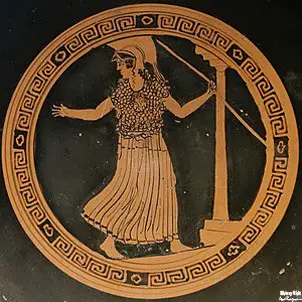
Athena is often depicted with various symbols that highlight her divine attributes and domains. The owl, her sacred bird, represents wisdom and watchfulness, often accompanying her in artistic depictions. This nocturnal bird symbolizes Athena’s keen insight and ability to see what others cannot, reinforcing her role as a goddess of wisdom.
The olive tree, another important symbol, is associated with peace and prosperity. According to myth, Athena gifted the olive tree to the city of Athens, securing her patronage and symbolizing the nourishment and sustenance she provides. The olive tree stands as a testament to Athena’s role in promoting peace and civilization through wisdom and strategic foresight.
Athena’s armor and the Aegis, a protective cloak often depicted with the head of Medusa, emphasize her martial prowess. The Aegis symbolizes both protection and fear, highlighting Athena’s ability to shield her allies and instill dread in her enemies. These symbols collectively illustrate Athena’s dual nature as a goddess of wisdom and warfare, reflecting her significant influence in Greek mythology.
Athena’s Role in Warfare
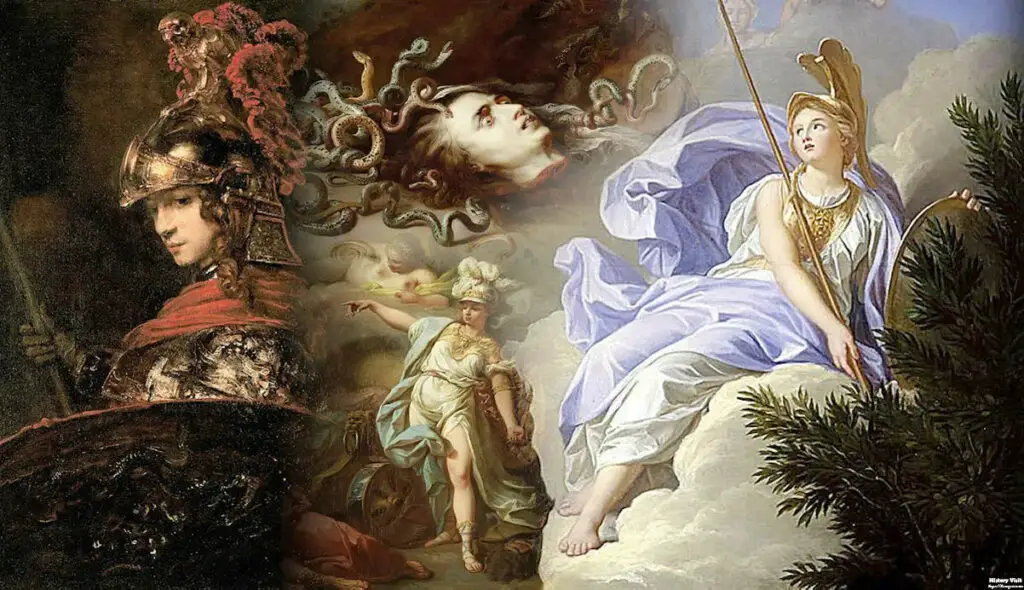
Athena, as the goddess of strategic warfare, stands in contrast to Ares, the god of chaotic and violent war. Her approach to battle emphasizes planning, strategy, and the intellectual aspects of warfare. Unlike Ares, who revels in the bloodlust and brutality of combat, Athena’s involvement in conflicts is marked by calculated decisions and the pursuit of just causes. Her strategic prowess is evident in numerous myths where she guides and supports heroes, ensuring that intelligence and wisdom triumph over sheer strength and aggression.
One of the most notable examples of Athena’s role in warfare is her involvement in the Trojan War. Athena was a key supporter of the Greeks, providing crucial guidance and aid throughout the conflict. Her most famous contribution was the inspiration for the creation of the Trojan Horse, a brilliant and deceptive tactic that ultimately led to the fall of Troy. This act of cunning strategy exemplifies Athena’s preference for clever solutions over brute force, showcasing her ability to influence the outcome of battles through intellect and foresight.
Athena’s influence extends beyond individual battles to the broader aspects of military organization and training. She is often depicted as a mentor to warriors, imparting wisdom and knowledge about warfare, tactics, and discipline. This mentorship is seen in her relationship with heroes like Odysseus, whom she guided and protected during the Trojan War and his subsequent journey home. By instilling these values, Athena helps to create not only skilled fighters but also leaders who value strategy, justice, and wisdom, reflecting her deep impact on the art of warfare in Greek mythology.
Athena’s Role in Major Myths
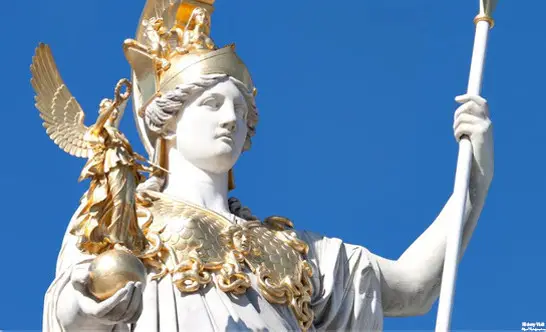
Athena’s involvement in major Greek myths underscores her importance in both divine and mortal affairs. One of the most famous stories involving Athena is her encounter with Medusa. Originally a beautiful priestess, Medusa was transformed into a Gorgon by Athena as punishment for desecrating her temple. This myth highlights Athena’s strict sense of justice and her protective nature over sacred spaces.
In the Trojan War, Athena played a crucial role in supporting the Greek heroes. Her strategic guidance was instrumental in key events, such as the crafting of the Trojan Horse. Athena’s support for heroes like Odysseus, whom she aided in his long journey home, showcases her role as a protector and guide, offering wisdom and counsel in times of need.
Athena’s guidance extended to other heroes as well, such as Perseus, whom she assisted in defeating Medusa. By providing him with a reflective shield and other tools, Athena enabled Perseus to accomplish his seemingly impossible task. These myths highlight Athena’s strategic thinking and her willingness to aid those who demonstrate courage and intellect.
Conclusion
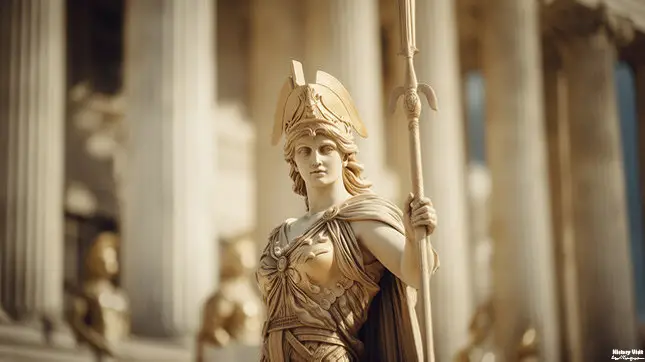
Athena’s multifaceted nature as the Goddess of Wisdom and Warfare highlights her central role in Greek mythology. Her influence on both intellectual and martial pursuits underscores her importance in ancient Greek culture. Through her symbols, myths, and worship, Athena embodies the values of wisdom, strategy, and justice, offering a nuanced portrayal of divine power.
Athena’s legacy continues to endure in modern interpretations of Greek mythology. Her role as a guide and protector of heroes, as well as her patronage of arts and crafts, reflects her significant impact on the cultural and intellectual life of ancient Greece. Athena’s dual nature, combining intellect and strength, serves as an enduring symbol of the ideal balance between mind and might.
In celebrating Athena, we honor a central figure in Greek mythology who represents the timeless pursuit of wisdom and the strategic acumen necessary for both personal and communal success. Athena’s stories remind us of the enduring relevance of these qualities and their importance in our own lives, reflecting the timeless nature of her divine influence.


